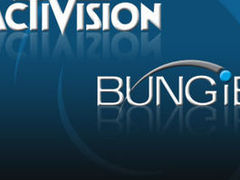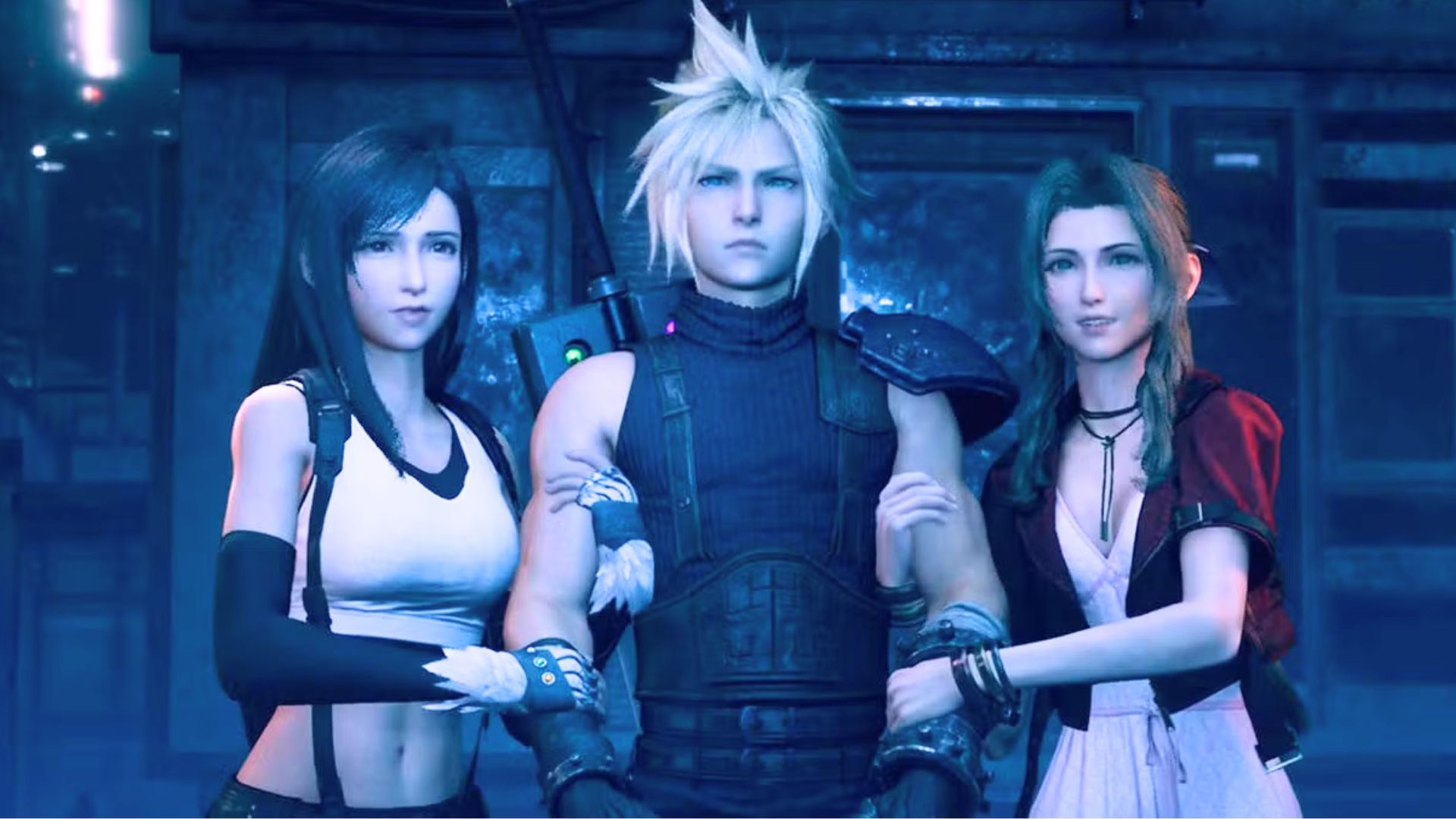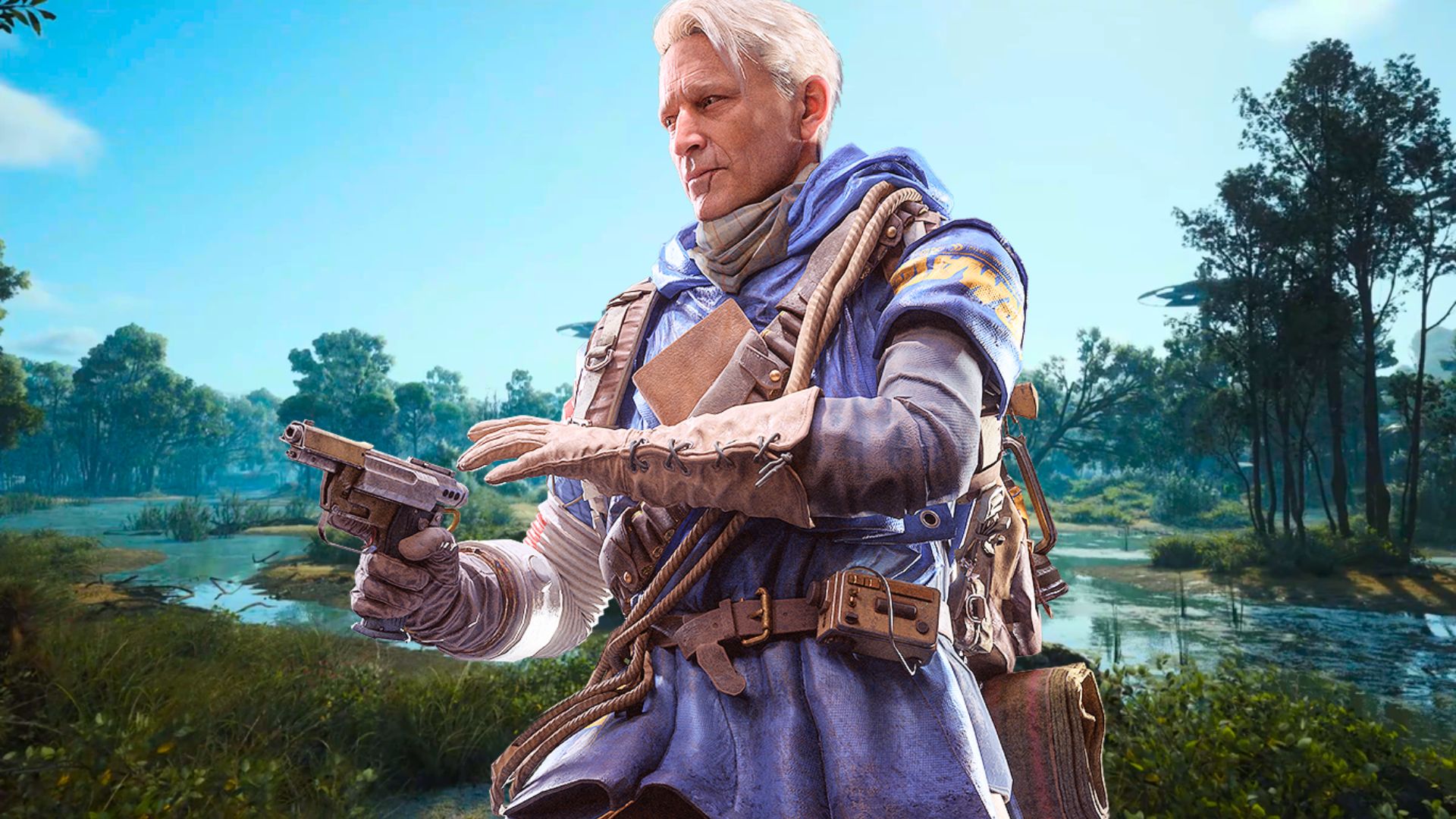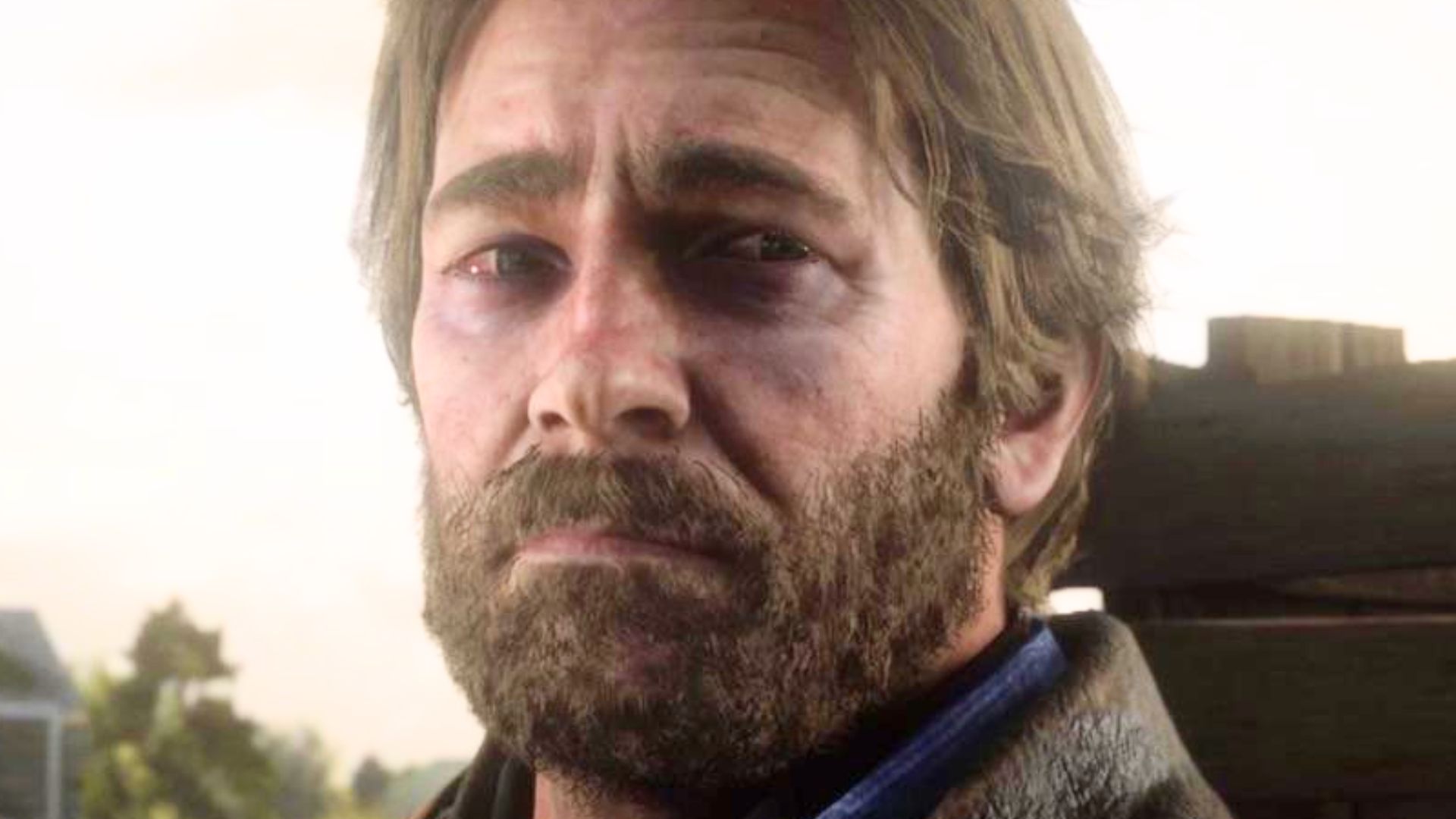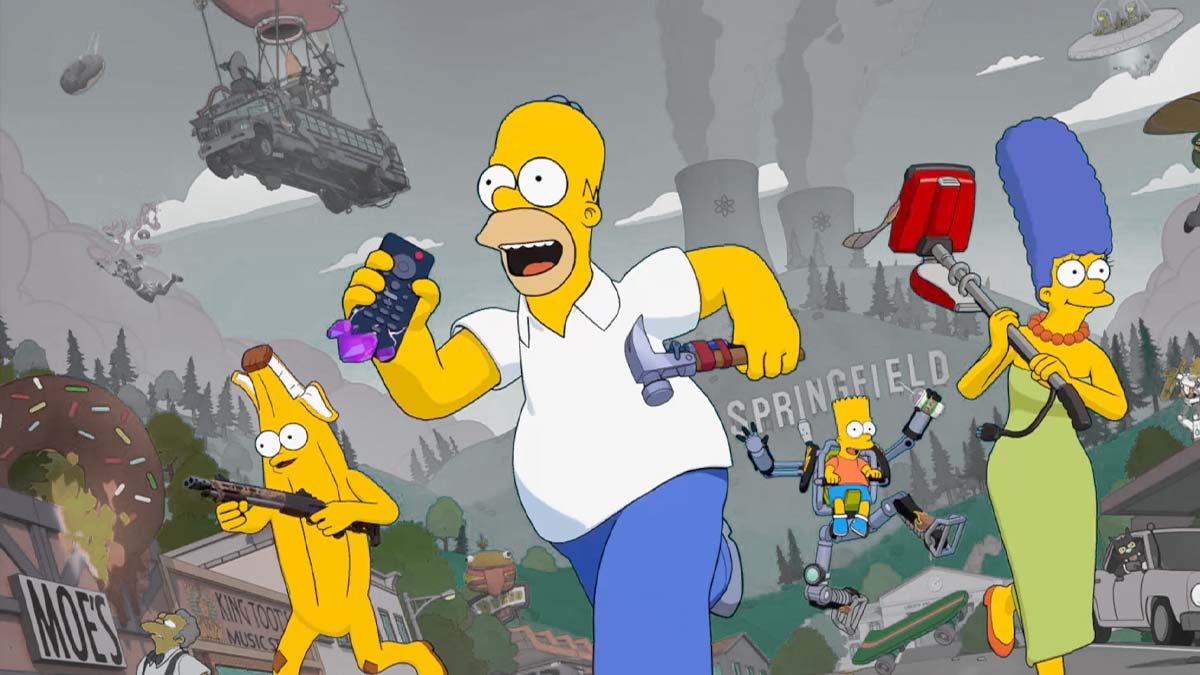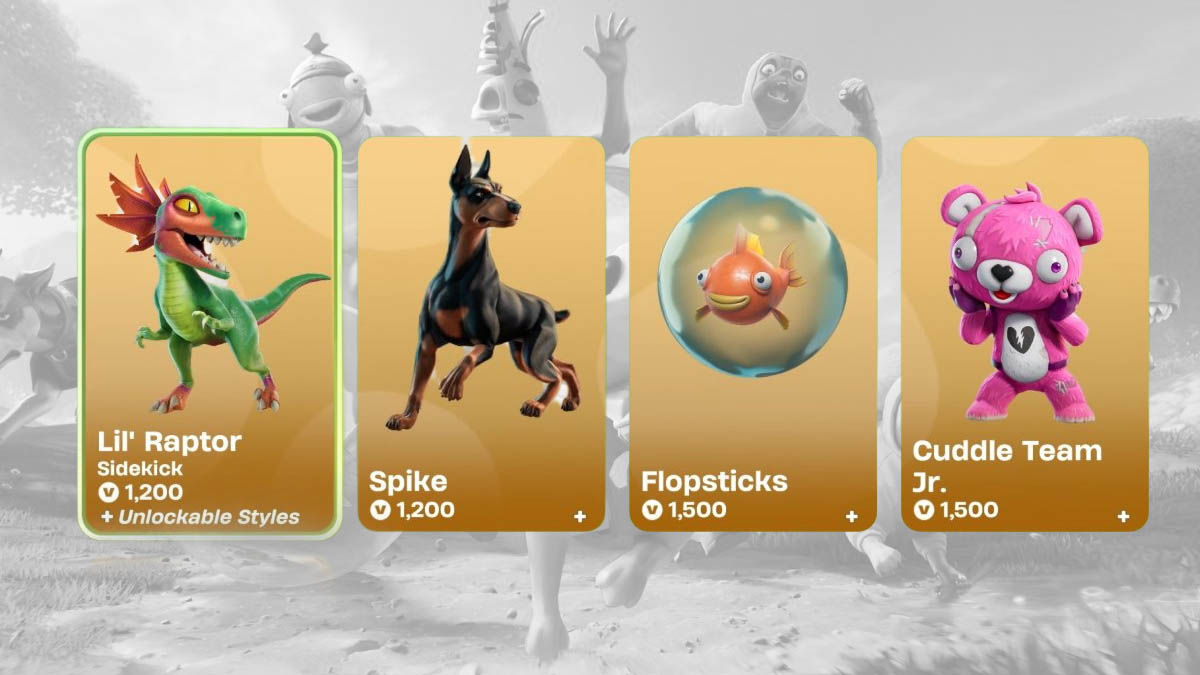You can trust VideoGamer. Our team of gaming experts spend hours testing and reviewing the latest games, to ensure you're reading the most comprehensive guide possible. Rest assured, all imagery and advice is unique and original. Check out how we test and review games here
Bungie’s community manager Brian Jarrard is a man in demand. Yesterday, following the earth-shattering news that the Halo developer had signed an exclusive ten-year publishing deal with Activision for multi-platform games based on a new, unannounced gaming universe, the internet erupted. What does this mean for Halo? Has Bungie sold out? Will it make the next Modern Warfare? And what’s this new “gaming universe” all about then? Now, with the dust beginning to settle, Jarrard talks to VideoGamer.com to dispel the speculation surrounding the ground-breaking deal (and yes, we ask him about Modern Warfare).
Q: Hi Brian, thanks for talking to us. I guess you’ve been up to your eyeballs in calls over the last 48 hours.
Brian Jarrard: Yeah it’s calming down, which is exactly what we had hoped. We were excited to share this news now that the contract’s been signed, but obviously we’ve got a lot of work to do on Halo: Reach and we want to get right back to business. It’s been a little bit of a whirlwind but I think it’s starting to taper off and we’re just eager to get on with our lives and keep working on Reach.
Q: Well, congratulations on the deal with Activision.
Brian Jarrard: Thank you.
Q: You’ve said that Halo: Reach will be Bungie’s last Halo game. How does it feel to be free of the Halo franchise? Do you feel you’ve done everything you wanted to do with it? What feelings and emotions is Bungie experiencing as Halo: Reach nears release?
Brian Jarrard: You know it’s an interesting mix of emotions. It’s bitter sweet. On one hand we have a lot of people at the studio; the majority of the core team that created Halo is still here at Bungie today and a lot of those same people are engaged on already working on the foundations for what will be become our next big game universe. But for those people to have taken Halo from early concepts and story bible in an RTS game where they were driving a Warthog around a grassy hill to where the franchise is today, it’s definitely mindboggling for a lot of people. It’s humbling when you stop and think about it.
Bungie never thought that Halo would become what it is today. As we start nearing the end of Reach’s development and it really starts to sink in that we are going to be putting out this final Halo project, it’ll be a little bit sad; kind of the end of an era. I’ve used the analogy of walking your daughter down the isle and sending her off into the world. It’s something that we’ll also have a moment of pride and a sense of accomplishment. How much our team has been able to do over the last ten years and how much we have taken this franchise and turn it into what it is today and knowing that we’re going to leave behind this legacy that will inevitably continue to persist and to see what Microsoft does next with it, it’s exciting to know that we’ve been able to leave that mark. It’s invigorating to know that now we’re going to embark on the next big chapter in our studio and strike out and try something completely new and different and original. There’s some trepidation that comes with that as well. You know the expectations and can we do it again, but this studio thrives on challenge and rises to meet those challenges. So it’s a great situation for our studio to be in. Right now though our focus is on making sure Reach really is our defining Halo title and we can leave our lasting mark and leave our fans a game we can all look back on and be very proud of.
/https://oimg.videogamer.com/images/2cb6/acti_bungie.jpg)
Q: Bungie has a proper constitution that was developed following your split with Microsoft. It seems very unique to have something like that.
Brian Jarrard: We drafted this back in 2007, which was a landmark period in time for our studio. That’s when we divested from Microsoft and became independent again. It was a really important time for our studio and for our studio leadership to come together and set the tone for the future of our studio. The interesting thing for us is it’s become a guiding force on how we conduct ourselves internally and externally. Some of the articles from our constitution directly translated into the deal we were able to achieve with Activision. For example, one of our most important principles is that we will own what we create. For us it’s very important to make sure that Bungie will own our new IP going forward. That’s not the case with Halo. That was a lesson we’ve learned over the past decade and that was not a situation that we ever want to be in again. It was also important to us that we remain independent; that we only work with people that we trust and respect; that we have creative control over our projects and community. All these things were the pillars of discussions as we talked to potential publishing partners to work out our next alliance.
Q: You mentioned that Bungie never wanted to be in the position of working on someone else’s IP. What was so bad about doing it with Halo that made Bungie feel that way?
Brian Jarrard: If you look at any group of creative people – and I think everyone would feel this way, but not everybody is going to have the opportunity to get these types of terms – it’s just not nearly as inspiring and fulfilling and rewarding to not own what you’re working on, to not know that you’re in control of it. We don’t have regrets in that regard. I don’t think Bungie would be where it is today if we hadn’t been acquired by Microsoft. Clearly that acquisition was really about Halo. All those things ultimately worked in our favour and got us where we are today. But going forward, as creative people putting your blood, sweat and tears in now what will become ten years of our lives into this universe, we want to make sure that we’re in control of it and it’s going to evolve and play out the way we want it to. Otherwise I don’t think anyone here would be inspired to make that kind of commitment.
Q: How do you feel now you’ve had a little bit of time to digest the reaction to the deal? Some of the criticism and scepticism has I guess been influenced in part by Activision’s recent bad press around Infinity Ward. Have you had a chance to have a look online at the reaction? How do you feel about it?
Brian Jarrard: Absolutely. I have gone through it. It’s to be expected. It’s exactly the kind of reaction we thought we would receive. We’ve been following online over the past few weeks the same activities and breaking drama that everybody else has. Our discussions with Activision started nine months ago. It’s never been something that they’ve discussed with us. We’re happy knowing that our situation and our deal is so fundamentally different that it just doesn’t impact us. We’re not being purchased by Activision. We’re not going to become absorbed by their company. We’re fully independent. We’re going to own this new IP and we have creative control over the games that we make. For us it was great that they were willing to meet us on those terms and to have enough confidence in letting Bungie do what Bungie does best. Ultimately that’s what led us to partner with Activision. Clearly they’re a great publisher in terms of their global reach and their marketing expertise and their ability to bring huge games to market in big ways. Also their experience with multi-platform releases and development was something that we were very interested in as well. But the fact that they’re willing to do all that and still let Bungie hold on to most important to us made them the best partner.
My only regret, the only thing that gives me pause rather is the unfortunate timing of our announcement. We just had the contract signed this week. We’re very sensitive about not wanting this news to interfere with Reach. Our beta starts Monday and we’ve a lot of exciting activities planned from now through launch. We didn’t think we could keep this under wraps and keep it secret for very long. So we just made the decision that we should just go ahead and make this announcement, get the news out there and get it over with, and then we want to return right back to work on Reach. I fully believe that people won’t be talking about this much longer. Eventually when the time comes we’ll actually have real interesting game discussions to have and creative to share. That’s the point where I think gamers will start to pay attention and hopefully share our excitement for what’s to come.
Q: You’ve said you won’t talk about your new gaming universe this year. Are we looking at an early 2011 reveal or is it really far off?
/https://oimg.videogamer.com/images/2343/bungie_activision.jpg)
Brian Jarrard: It’s a slippery slope so I don’t want to get us into the corner there. But I will say it’s going to be a little while before you hear anything else. Certainly for the rest of this year we are 110 per cent focused on Halo: Reach. We don’t want to lose sight of that or distract from that. But beyond Reach we have some interesting opportunities and ideas for how we start to introduce our universe to our fans and the types of engagements we can have and how that’s going to play out. We actually have a pretty solid schedule and plan that believe it or not spans about ten years in the types of stories we want to tell and how our universe will evolve. For us we had to have that plan in place before we could even go talk to publishing partners and get them to buy into something of this magnitude. Looking back on our decade of work on Halo, which had no plan – it was all by the seat of our pants – and having the time now and the wherewithal to look forward and pro-actively figure out knowing now what we didn’t know then how we do things differently, it’s allowed us to put together a comprehensive framework that we believe in and Activision fully supports.
Q: Activision Publishing’s chief operating officer Thomas Tippl has been quoted as saying online should be expected to be a big part of your next game. You’re making an MMO, aren’t you?
/https://oimg.videogamer.com/images/4b1c/bungie.jpg)
Brian Jarrard: I’m not going to get into specifics about… I don’t want to put a label on what type of genre or what type of game it’s going to be other than to say that we’re definitely going to be building another action game universe. It’s something Bungie has always done and I believe we do very well. There are a couple of pillars and common threads that have defined all Bungie games. Online and community and social connectivity are huge parts of every game we’ve ever made. That’s definitely going to be the case going forward. Even more so, as we now have the opportunity to look at more than just a single box and think about other touch points for our fans and interesting ways for our fans to engage in our universe and opportunities that we have not had before.
Q: The eyes of the gaming world seem to be on Bungie right now, with the Activision announcement and the upcoming Halo: Reach beta. How do you cope with the attention and pressure you’re under?
Brian Jarrard: Well, on one hand it’s flattering and humbling that we have had such tremendous fan support through the years, and knowing that we have this really engaged community that’s super excited to see what comes next from Bungie and to share and embark in our next chapter together is, we’re really fortunate and grateful that we’ve had such strong support and that our fans are so excited to follow us into our next chapter. But I have to say that for the majority of the team it’s not something that people spend a lot of time thinking about. As cliché as it may sound, the bulk of the pressure has always come from within. It really comes from the person sitting next to you and making sure you’re always doing your best work. We’ve always been our harshest critics. We’ve always had our own highest expectations for ourselves. The vast majority of the team just doesn’t get caught up in the external noise and the external commotion. It’s really just about focusing on what we do best: creating interesting, rich, compelling universes and telling great stories and delivering great gameplay experiences. As cliché as that sounds that’s really at the core of our studio. That’s allowed us to continue to succeed and do great work amidst… every Halo game that we’ve made has had tremendous expectations and tremendous pressure. The more we’ve succeeded the more of a target we’ve had on our back. Most of the team is able to not pay attention to that and do what they do best, whether it’s creating art or writing code or building great technologies and tools.
I just think we’re fortunate that we have a group of people that are so passionate about their craft. This is a fun place to work. This is just people ultimately making games that we want to play. That’s the way Bungie started and that’s the way we’re looking into the next decade as well. We can honestly say that our next universe and our next IP and the types of experiences that we’re working on really stem from things that we personally are very excited about and we personally can’t wait to play and explore.
Q: I’ve read a quote from you in another interview you conducted yesterday, which said Bungie would be open to discussing working on other IP for Activision. I just wanted to clarify that with you, because I’ve also read a quote from you saying Bungie isn’t keen on being fragmented into multiple teams working on multiple projects. Is it accurate?
Brian Jarrard: Yeah, you’re absolutely right. It’s possible that I said…, like I wouldn’t say that we would never have that discussion. But I should definitely clarify that a hundred per cent our focus going forward is on our own IP. We are definitely inspired and excited to work on our own original IP. Working on somebody else’s intellectual property does not excite us at all. Frankly in order to pull off what we have envisioned for the future and where we want to take our next universe, and just how ambitious it is and the scope and scale, it’s going to require our entire studio to pull this off and to execute it. I just don’t see a reality where we could even afford to fragment our team across multiple projects, let alone would we ever want to do that. We are laser focused; everyone’s aligned to a single goal. Honestly, that’s when Bungie’s at its best.
Q: So all this speculation about you guys perhaps doing a Call of Duty game for Activision if Activision asked is unjustified?
Brian Jarrard: Yeah. I can certainly see why people would speculate that, but it’s definitely not something we’re interested in at all, and there have been no discussions around that. This partnership and every discussion over the last nine months has been solely based on Bungie bringing its own original IP and its next universe to life.
Q: You’ve talked about your new IP being a multi-platform release. That of course these days involves the PS3. You’ve been working exclusively on Xbox consoles for a while now. How will you meet the challenge of working on a console that’s quite different in terms of architecture compared to the Xbox?
Brian Jarrard: We want to be careful that we’re not going to start listing off exactly what the platforms our universe may extend on to. But it is exciting to us because we haven’t had the opportunity before. As storytellers it’s always great to try and seek out the largest possible audience to share your work with. Knowing that we now can look at new ways to create touch points and engagements for our fans in our universe is definitely exciting to us and that was a huge part in us eventually coming to Activision, because they have that expertise. But as far as how we’re going to tackle that, you’re right; it’s a little bit daunting. Just knowing that for the last decade we’ve just exclusively worked on the 360 and we’ve had intimate insight into that hardware. But we’ve made a lot of great additions to our team. We have some of the best engineering staff in the industry. We have a really deep bench there and a lot of expertise. Even in recent years we have significantly grown in that area. One of the things Activision can bring to the table is a lot of internal resources and expertise as well on these platforms that we’re definitely going to be tapping into as we have our discussions and as we start to explore when, where and how our universe may manifest onto different devices.
Q: All eyes now point to E3 in June. Bungie has already talked about how excited it is about its plans for the show. I don’t expect you to reveal what you’re planning to talk about here, but can you tell me if you’re planning to challenge our preconceptions of what Halo is and what it can be?
Brian Jarrard: Let me just clarify, because I’ve heard some stuff online. I’ve tried to be pretty overt that people should absolutely not expect to hear anything about our next game at E3. This year, again, we don’t want to lose sight of Halo: Reach. That’s clearly our focus for the rest of the year. We’re going to be a little ways away from the next real news about our future.
However, we do have some exciting plans for E3. It’s obviously a huge show for us. It fits perfectly in our ramp up to release. I would just say that as far as what you might be able to look forward to, from the very beginning of Reach’s development and our initial communications with our fans and the media, we’ve stated form the beginning that we view this as the best Bungie game yet and our defining, definitive entry in the Halo series. We’re going to be doing things in Halo: Reach that we’ve never done in a Halo game before. E3 will be a great opportunity to start to make good on some of those promises.
Q: Thanks for taking the time to talk to us.
Brian Jarrard: Not a problem at all. Thanks for your time as well.
